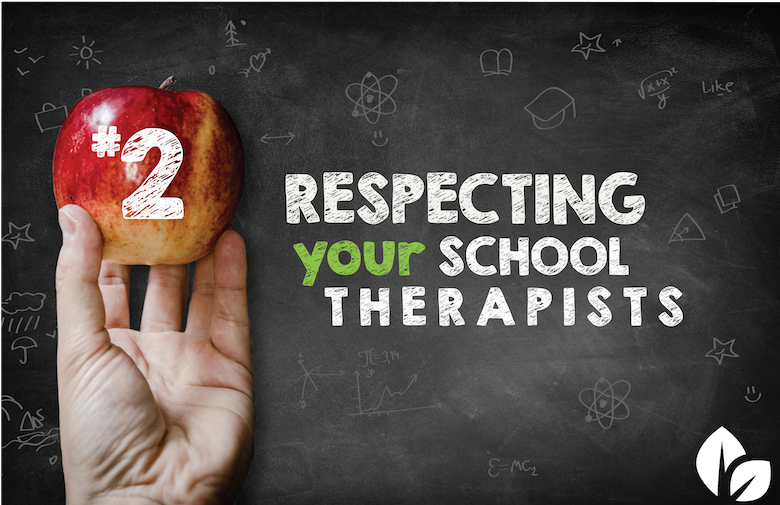School administrators are used to thinking about how to communicate respect to their teaching staff, but they may not know how to best communicate respect for their school therapist staff members. The communication of respect is important, because respect maintains employee morale under difficult circumstances. And as every administrator knows, a multitude of factors make working in a school setting an increasingly challenging job. But, as Diana Strasser reminds administrators in her Open Letter on Teacher Morale from the ASCD Educational Leadership Blog,
“Teacher morale, in my experience, is not a function of practices designed to maintain or create it… It’s a by-product of being treated as leaders and being treated with respect. Teacher morale is the end-product of empowering teachers to make decisions that affect their lives.”
Just as the communication of respect can make a world of difference in the morale of a teacher, Speech Language Pathologists, and Physical and Occupational Therapists who work in school where they feel respected are much more likely to return year after year. Actions and attitudes that communicate respect to a school therapist have much in common with the ways that administrators communicate honor to teachers. However, since therapists who work in schools have some unique challenges, administrators can use the following specific areas to show their therapists that they are going to bat for them.
Of course, not all therapists care about the same things. And so, any school administrator’s first step towards communicating respect for the PT, OT, and SLP’s who work in their building is to make sure they understanding their therapists and find out what is important to them. If you haven’t already read Part 2 of this guide, Understanding the Differences Between School Therapists and Teachers, click here.
In addition to understanding your therapists, here are 4 areas where school therapists commonly encounter feelings of disrespect or frustration. You can use this list to find out whether or not your therapists feel respected as members of your staff by asking your therapists to rate your school on a scale of 1 -10 in each of the following areas.
4 Area that Administrators can use to communicate respect for their school therapist staff members.
1. Titles of Respect:
What name do administrators, fellow teachers, and students use when addressing your school therapists? Are these the titles that your therapists would like them to use?
2. Adequate Space:
Where do students in your building go to receive PT, OT, or SLP services? Is it quiet? Is it large enough? Is it private? Does the space have a window?
3. Adequate Budget:
How much money is in this year’s school budget to provide the following:
a. Opportunities for therapists to attend accredited, therapy specific continuing education classes
b. Special purchases of devices or equipment to help physically or verbally challenged students gain skills
c. General school or office supplies, such as games, manipulative, or construction paper
4. Realistic Student Caseloads:
How many students are on each of your therapists’ current caseloads? Is it possible for your therapists to see and document that many visits? How do your therapists’ caseloads compare to other schools in your district or in your state?
Hopefully, this list will open the door to helpful conversations about what can and can’t be done to improve these areas. Scoring a “10” in each of these areas is a great start to making sure that your therapists feel valued and respected. If you can suggest other areas or questions that could further improve communication between administrators and school therapist staff members, please add them to the comments section below!




